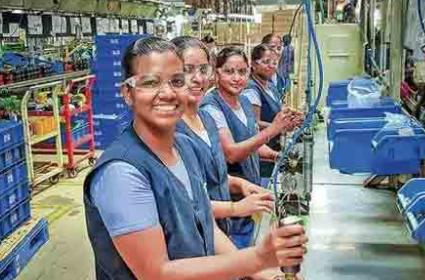Why MSMEs Should Be At Center Of Policy Interventions To Spur Economy

By Dr. Aatish Parashar, Dean and Head, Central University of South Bihar
International Day of Micro, Small, and Medium Enterprise | India's Micro, Small and Medium Enterprises (MSMEs) are true unsung heroes who power the show without ever taking the limelight. The past few years have been especially challenging for Indian MSMEs, who have had to contend with a range of issues, from capital crunch and lack of access to cheap financing, to crippled demand and mounting dues from a range of customers including the Government of India.
The pandemic was especially cruel to MSMEs, as repeated lockdowns forced them to battle everything from labor shortages to input cost escalation and delayed payments that sent their working capital cycles for a toss. Now, as the economy battles inflation, MSMEs are staring at interest rate hikes that threaten to hurt consumer demand again and, at the same time, increase their borrowing cost.
MSMEs are the unsung heroes of Make in India, perpetually toiling away, manufacturing over 6,500 items and delivering myriad services. They employ more than 11 crore people directly, several more indirectly, and are responsible for 30% of India's Gross Domestic Product (GDP). Indian policymakers should therefore focus on MSME revival so that the economy as a whole may truly revive.
A cycle of inflation-fighting rate hikes, like the one we have entered, also hurts overall capital expenditure. There are some issues however, which can be dealt with rather quickly, which will eliminate some of the stress faced by MSMEs. Every year, around 10.7 trillion rupees worth of MSMEs dues are locked up as delayed payments from buyers to MSME suppliers. Delayed payments to MSMEs impede their growth by curtailing room for capital expenditure, training, research and development, and technological upgradation. Indian MSMEs spend considerable resources and bandwidth just chasing after payments from buyers. These resources could be put to far better use in business development and growth.
To be sure, India has prompt payment laws in place which stipulate the maximum number of days within which suppliers must be paid. But MSMEs rarely enforce these or take their customers to court for fear of losing business. Earlier this month, some large corporates across sectors like automobiles, fast moving consumer goods, electronics, aviation, financial services, and consulting took a prompt payment pledge. Despite these noble overtures, things are yet to change on the ground.
In fact, on terra firma, things remain quite different, with little chance of change until seismic alteration is forced through. Change should begin at the doors of the Government of India, which is the biggest customer of MSMEs. The government must usher in change by promptly payingits MSME suppliers in time. Indian policymakers must also protect those making in India. For example, companies that are making in India in sectors of high precision manufacturing such as optical fiber cables must be protected from dumping of product from other countries through the introduction of anti-dumping duties.
Another vexing issue Indian manufacturers face is the unavailability of trained manpower. MSMEs need well-trained workforce that can respond quickly to demand and changes in technology, know-how. Some sincere efforts are being in the direction of providing MSMEs with trained manpower. The Madhya Pradesh administration, for example, has been overseeing the running of a successfulMukhya Mantri Kaushal Samvardhan Yojana, which has trained and skilled unemployed youths in the state. Additionally, Madhya Pradesh also launched their new startup policy in May this year, which seeks to increase the state's attractiveness to startups – withIndore the startup hub.
Some civil society organizations have also taken it upon themselves to train the youth and upskill them to be job ready. I have had the good fortune of observing some of the work done by Smile Foundation through their Project Manzil initiative. The initiative has now provided employability training to around 14,000 young girls and enabled on-the-job training of another 5,000 girls to secure their future. The Foundation has encouraged the girls by enrolling them in vocational education courses. India requires skilling initiatives that are truly large – inscale and ambition. This will ensure MSMEs in the country get a consistent supply of trained manpower, removing a key constraint in their path to growth.
Indian policymakers are navigating particularly choppy waters. As if the war in Ukraine was not enough, they are battling the after-effects of interventions by US and European regulators to douse unprecedented levels of inflation in the western hemisphere. As the Indian economy veers through these rather unpredictable times, Indian policymakers must provide a sense of comfort to entrepreneurs through a caring touch in policymaking. Policy interventions should therefore keep MSMEs’ concerns front and center. Afterall, small business is the beating heart of the Indian economy and would be crucial to helping India realize its ambition of becoming a five trillion-dollar economy by financial year 2027. This would also be in line with the Government of India’s own commitment to raise the contribution of MSMEs to 40% of the country’s GDP.
























